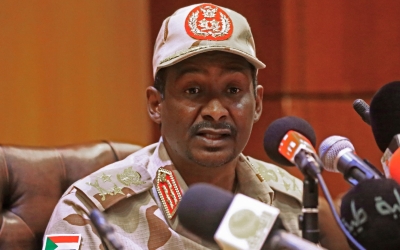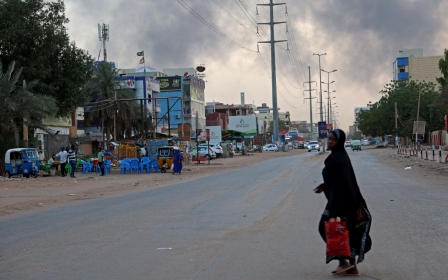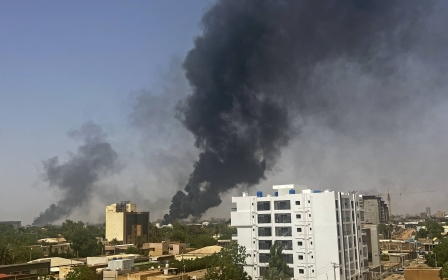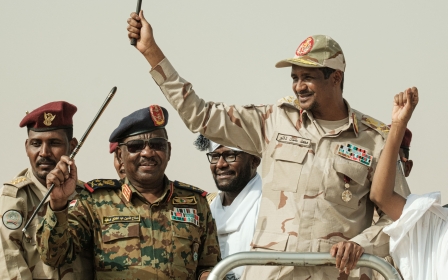Sudan: Fighting continues as ceasefire reportedly set to begin across country
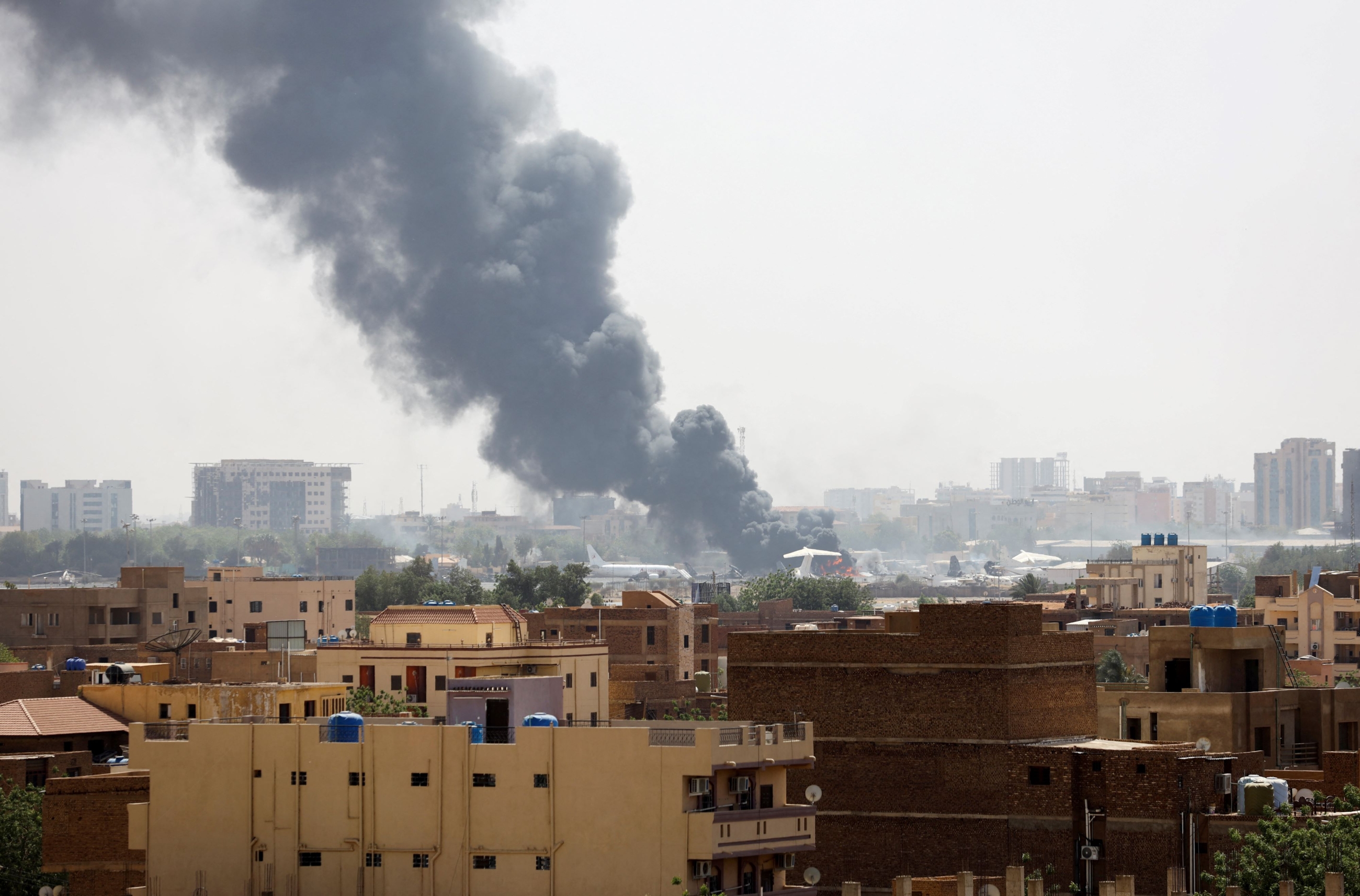
Fighting was continuing across the Sudanese capital Khartoum on Tuesday evening less than a hour before a 6pm truce was reportedly set to go into force.
At least 185 people have been killed and more than 1,800 wounded since violence broke out between the Sudanese Armed Forces and paramilitary Rapid Support Forces (RSF) over the weekend, according to the UN. Others have suggested the death toll could be considerably higher.
Khartoum has suffered heavy damage including to hospital buildings, while in the morning smoke hung in the sky over the army headquarters.
The Central Committee of the Sudanese Doctors (CCSD) has warned that dozens of hospitals across the country had gone out of service due to the fighting and warned the entire health system risked collapse.
RSF leader Mohamed Hamdan Daglo, better known as Hemeti, on Tuesday morning proposed a 24-hour ceasefire for the purpose of retrieving the bodies of those killed in the fighting and allowing civilian evacuations.
New MEE newsletter: Jerusalem Dispatch
Sign up to get the latest insights and analysis on Israel-Palestine, alongside Turkey Unpacked and other MEE newsletters
The call came following a discussion with US Secretary of State Antony Blinken, Hemeti said in a statement on Twitter.
However, army chief and de facto leader of Sudan General Abdul Fattah al-Burhan initially rejected the proposal and continued launching air strikes across the country.
'The rebellion's declaration of a 24-hour truce aims to cover up the crushing defeat it will receive within hours'
- Armed Forces official spokesperson
"We are not aware of any coordination with the mediators and the international community about a truce, and the rebellion's declaration of a 24-hour truce aims to cover up the crushing defeat it will receive within hours," the official spokesperson for the Armed Forces said in a statement.
"We have entered a critical phase and our efforts are focused on achieving its objectives at the operational level."
However, General Shams El Din Kabbasi, a member of Sudan's ruling military council, told Al Arabiya TV that a ceasefire would begin at 6pm local time.
It remains to be seen if the ceasefire will be observed.
The first attempt at a truce took place on Sunday as the two sides responded to an international call by the United Nations, but the four hour ceasefire was soon violated.
The ongoing conflict stems from disagreements surrounding the integration of the RSF - one of the most powerful forces in the country - into the regular military.
Hemeti had previously backed Burhan in a successful coup in October 2021, but their uneasy alliance has now thoroughly broken down.
Diplomats attacked
Blinken on Tuesday told reporters that a US diplomatic convoy had been fired upon the previous day in Sudan.
"All of our people are safe and unharmed. But this action was reckless, it was irresponsible and of course unsafe," he told reporters in Japan after G7 talks.
In a separate incident, the European Union's ambassador was also attacked in his home in the capital on Monday.
Both the RSF and the armed forces have exchanged accusations over the attacks on diplomats.
An RSF statement accused the army of attacking the missions in order to sabotage attempts to monitor attacks on civilians.
Numerous international bodies have called for a ceasefire in the country, with foreign leaders at the G7 talks jointly calling for the parties to "end hostilities immediately without pre-conditions".
In a statement, the world leaders warned that the fighting "threatens the security and safety of Sudanese civilians and undermines efforts to restore Sudan's democratic transition".
Rising tensions
Tensions between the military and the RSF have escalated in recent weeks over disagreements concerning the integration of the RSF into the military, and disputes over what authority should oversee the process.
The integration is called for in a framework deal for naming a civilian government and launching a new transition.
The power struggle has twice forced a delay of signing the internationally backed agreement, originally scheduled for 1 April.
The deal is thought to favour Hemeti, which is one reason why the RSF chief has been publicly supporting it. A draft of the final agreement seen by MEE calls for the integration of the SAF and RSF - in addition to former rebel movements - to be agreed within 10 years.
The Sudanese Armed Forces, meanwhile, want the process of integration to take two years.
In March, the rivalry escalated, with Burhan calling for the RSF to be integrated into the military. Hemeti responded defiantly, saying that he regretted the October 2021 coup he had helped bring about with Burhan.
Created in 2013, the RSF emerged from the Janjaweed militia that then-president Omar al-Bashir unleashed against non-Arab ethnic minorities in the western Darfur region a decade earlier, drawing accusations of war crimes.
Middle East Eye delivers independent and unrivalled coverage and analysis of the Middle East, North Africa and beyond. To learn more about republishing this content and the associated fees, please fill out this form. More about MEE can be found here.


